The final course: UK instructor Bob Perry’s educational and culinary legacy
The final course: UK instructor Bob Perry’s educational and culinary legacy
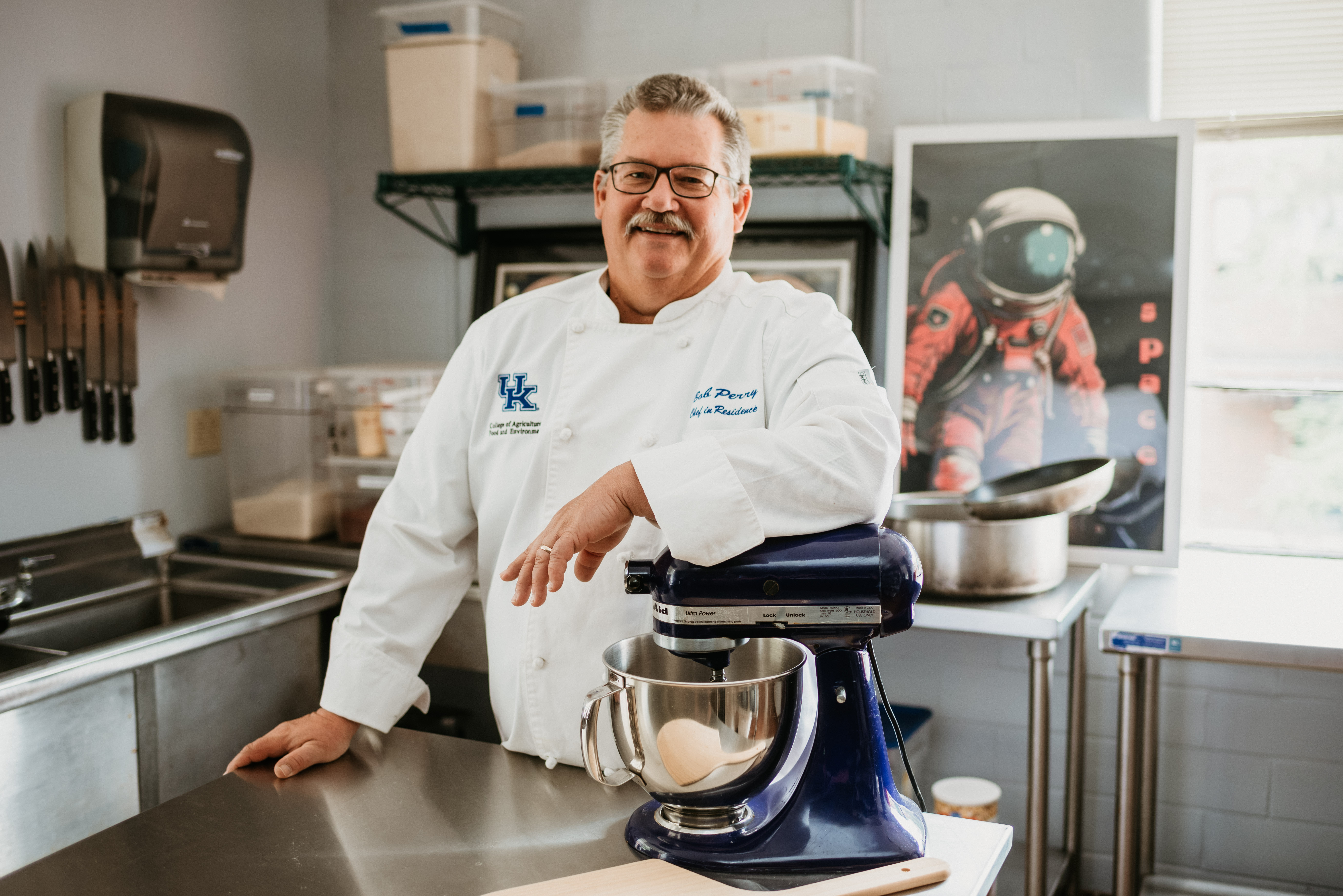

There’s something pure and earnest about a fresh tomato, warm from the sun and picked right from the vine. Bob Perry, the University of Kentucky’s chef-in-residence, knew this long before local food became a hashtag or a marketing trend. This knowledge helped launch an extraordinary career at the UK Martin-Gatton College of Agriculture, Food, and Environment and around the world.
Fresh foods equal fresh flavor
The culinary passion Perry brought to UK began many years earlier, when he had an idea for Kentucky’s state parks. Perry, already a seasoned chef who had made a name for himself aboard trains, riverboats, yachts and time in southern France, was now the food service director for state parks.
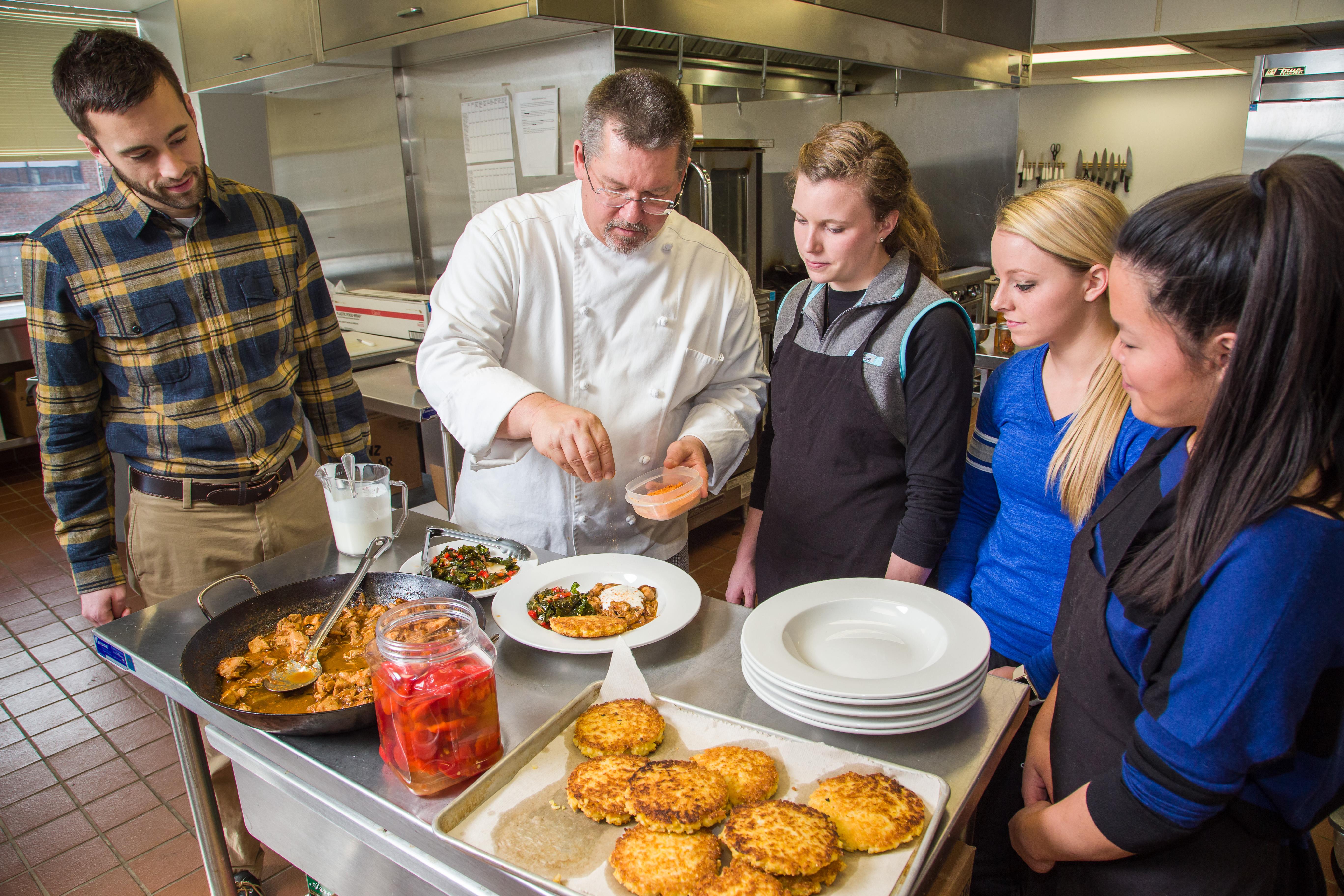
What if he could bring local flavors to every plate in every park? This wasn’t just about nutrition. It was about nurturing a connection between the land and the people who enjoyed its gifts.
“My thought back then was if I could put a fresh tomato on the buffet at state parks, it would make a big difference,” Perry said. “It took some effort, but we figured out how to buy local produce from local farmers at every park and then how we could also start to buy meat at the parks.”
Perry navigated the red tape that often binds public entities. Thanks to his persistence, local farmers found a new market, and diners discovered a new love for the tastes only Kentucky soil could offer.
It turns out that the success at the state parks was only the beginning. Invited by Scott Smith, then dean of the UK College of Agriculture, to join the university in 2006, Perry brought his vision to Lexington. Here, he wasn't just feeding college students; he was educating future dietitians, health professionals, chefs and hospitality managers about the value of local, sustainable food sources.
A unique teaching style
"Bob has a unique way of connecting with each student, making sure that what he teaches about food transcends the classroom and becomes a valuable part of their everyday lives," said Emily DeWitt, Perry's co-instructor and former teaching assistant. "Seeing how students transform from hesitant to confident cooks under Bob’s guidance is incredibly rewarding. It's a testament to his skill as an educator and his passion as a chef."
Perry believes in learning by doing. An example is each semester, he begins with pizza-making abilities on a student's first day.
“We used to walk students to the Tuesday morning farmers market on their first day, because few of them had ever been to a farmers market," Kentucky native Perry explains. “I wanted my students to pursue flavor and farmers markets are where you get some of the best flavors.”
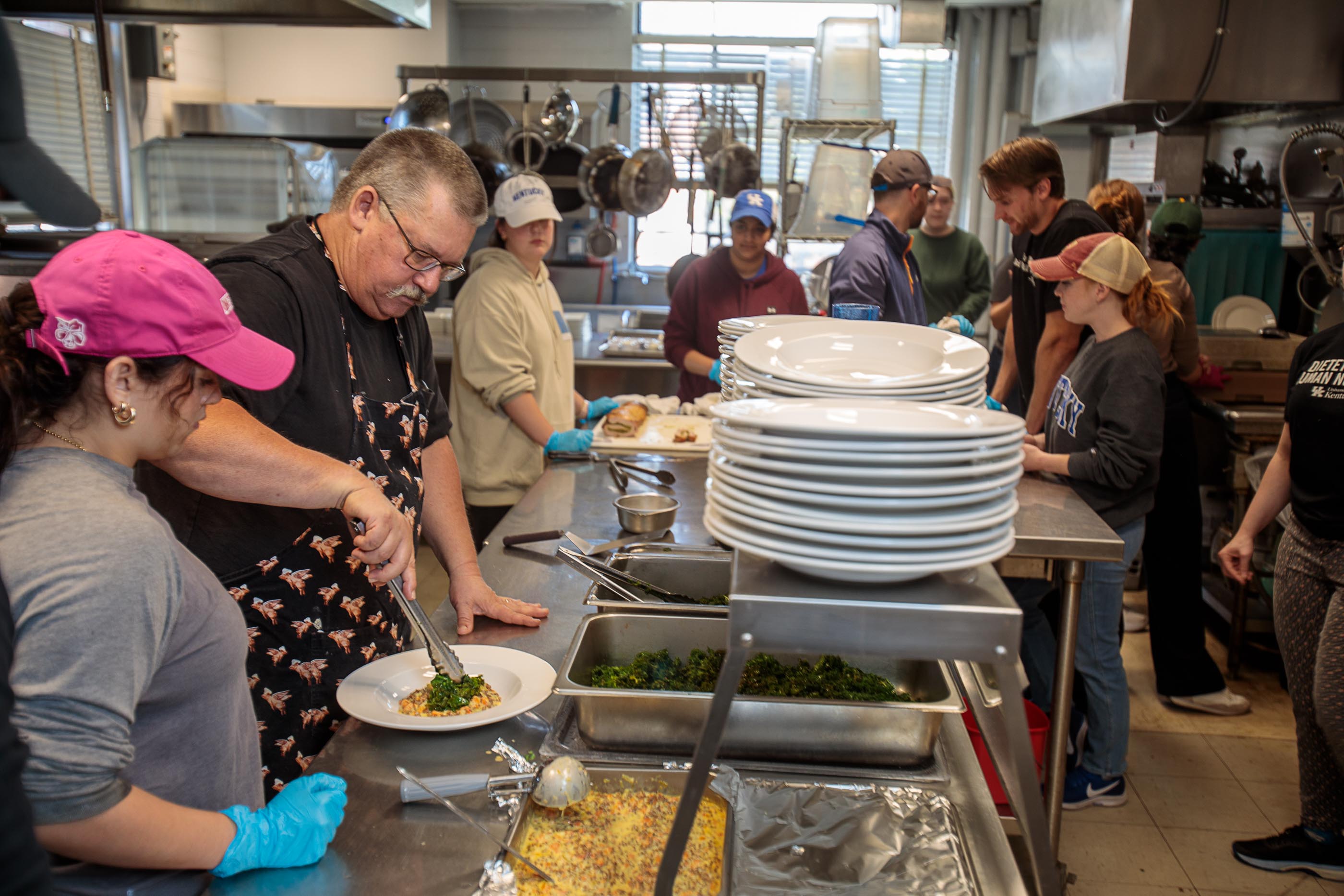
Perry’s teaching philosophy is simple yet impactful: empower students by making them more confident in the kitchen. This approach resonates with students from diverse academic backgrounds, each bringing their unique aspirations yet united by the universal language of food.
"From my personal experience, there are so many things I've learned from him that I still implement in my cooking regularly," DeWitt noted, emphasizing the lasting practical skills Perry imparts.
Just one student’s experience
UK student Annika Francke's journey in food and nutrition began unassumingly when she enrolled in an introductory food lab course facilitated by Perry. Now serving as an undergraduate instructional assistant for the same course, Francke's experience offers a unique insight into the profound impact an educator has on their students.
“You can tell Bob's teaching style is immediately different,” said Francke, a dietetics major who plans on tackling sports nutrition after graduating. “His sessions are not just informative but also really enjoyable. His expertise and natural knack for cooking makes learning easy. Plus, he can handle any question, whether it's about how to whip up something good to eat or how to fix a kitchen mishap. It’s impressive and sticks with you.”
Francke said what sets Perry apart is his dedication to teaching the fundamentals to beginners. His natural ability to explain simple cooking steps to novices, while also handling complex culinary challenges, highlights his dual expertise as a chef and a teacher. For Francke, working alongside Perry has been a learning experience and a source of inspiration.
"Bob makes difficult cooking techniques approachable for everyone," she said. “He is teaching us the mindset of a chef. His lessons have practical applications in the kitchen while also encouraging us to think about food in a broader context.”
Perry's influence is also evident in how he tailors his mentoring to individual student needs. Francke said Perry’s mentorship has been instrumental. For dietitians, understanding food preparation and ingredient synergy is essential. He has empowered her to gain confidence in these areas, enhancing her ability to advise others nutritionally in her future.
The Lemon Tree Restaurant
Perry’s journey didn’t stop in the dining halls and kitchen. Along with Sandra Bastin, he spearheaded the Lemon Tree Restaurant project, a hands-on laboratory for culinary creativity and local food procurement at the university. He had previously worked with Bastin on local food projects, including some during his time with the state parks.
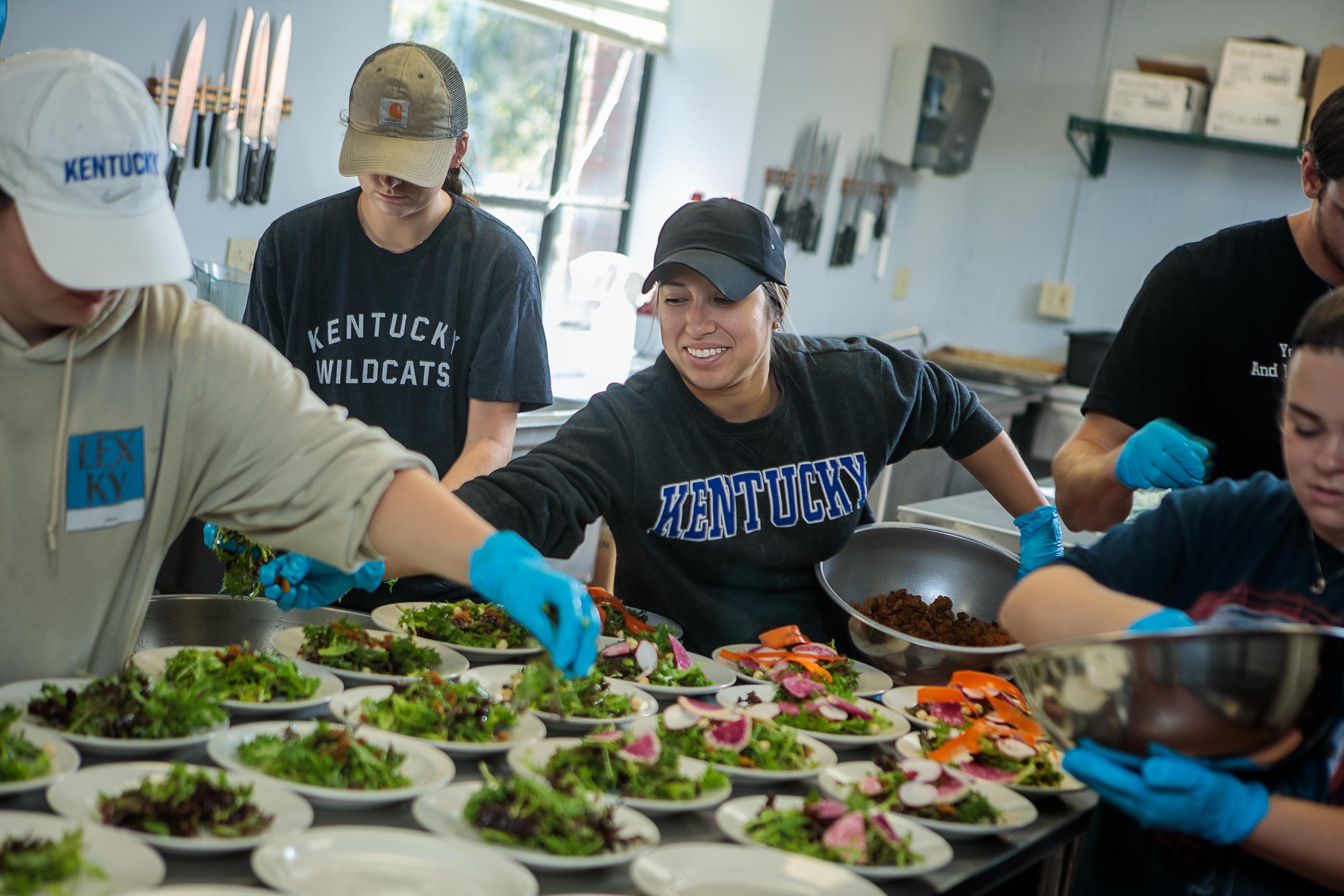
“At the Lemon Tree, Bob turned the idea of local food into a reality that went beyond the campus," Bastin said. "He championed the cause of freshness and sustainability. Bob always saw the Lemon Tree as more than a culinary establishment. To him, it was a promulgation on the power of local sourcing."
Under his guidance, students experienced firsthand the challenge and joy of preparing and serving a three-course meal entirely from local ingredients. Each student received experience in both front-of-house, acting as manager and a turn as waitstaff, and back-of-house, preparing meals. This portion of the semester was not just about cooking; it was a lesson in food science, food economics, sustainability and community engagement.
"The multiple lessons learned through the Lemon Tree are one of Bob's enduring legacies,” DeWitt said. “He changed our menus and mindset, teaching us that the choices we make in the kitchen can echo throughout the community and the environment."
This has become increasingly clear as the Lemon Tree is among the top-reviewed restaurants in Lexington, serving up much more than just meals
Bastin believes the Lemon Tree is one of Perry’s greatest contributions to the region.
“It lies in his philosophy that everyone deserves access to good food at an affordable price, a principle he instilled in his students,” Bastin said. “Bob is a master in the kitchen, and he’s helped his students see that cooking is an art form that benefits directly from the quality of its ingredients. Lemon Tree customers can see this in their food.”
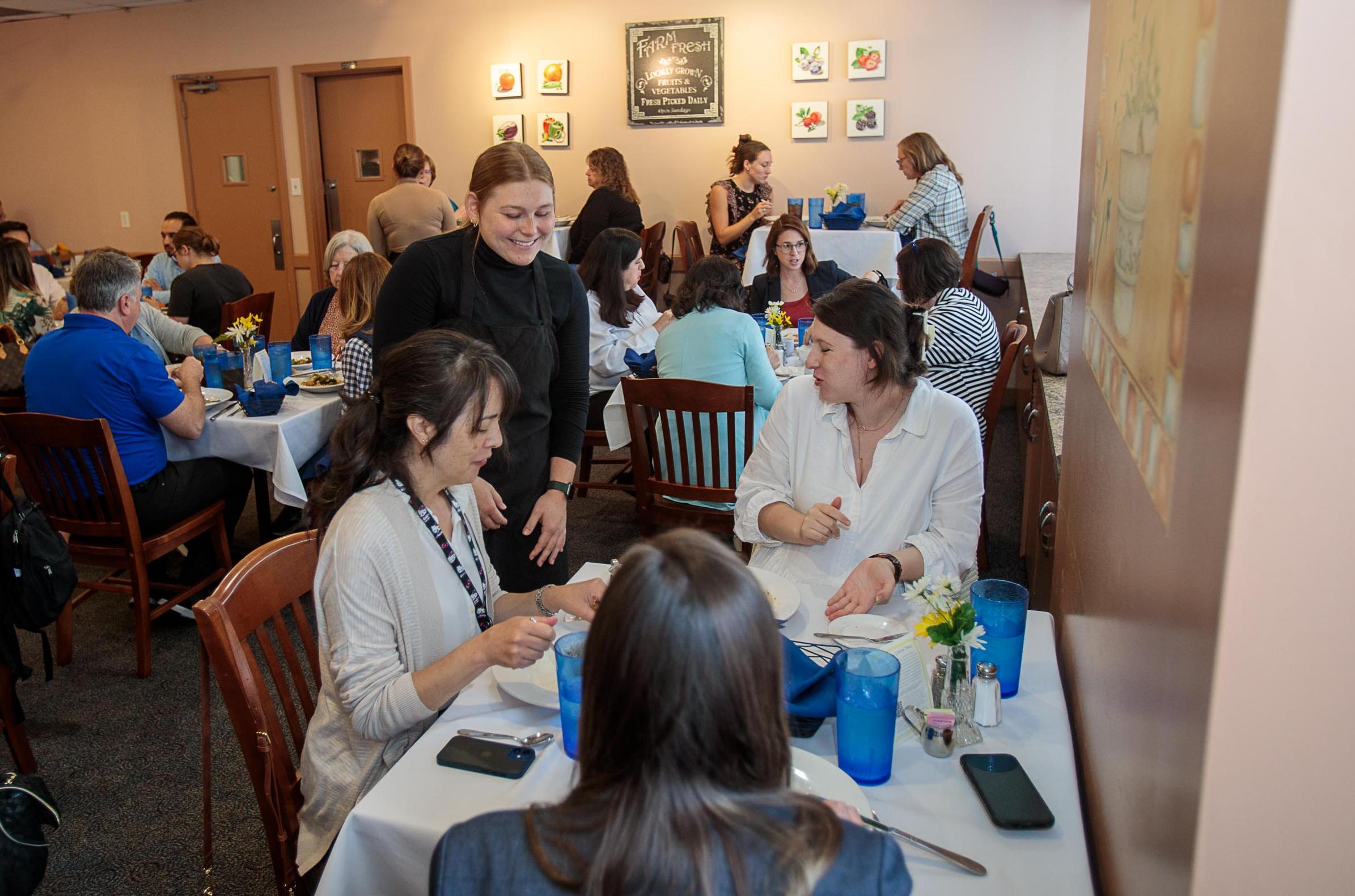
Reflecting on Perry’s departure from the university, Bastin expressed confidence that his influence would endure.
“He’s laid a foundational attitude toward food that will perpetuate through his students and into their professional lives, whether they serve in restaurants, hospitals, schools, the government or private sector.”
Neurogastronomy
Perry is also pioneering the intriguing field of neurogastronomy, which studies how the brain perceives flavors. This innovative work is transforming the culinary landscape, particularly for those with altered taste perceptions, such as cancer patients on chemotherapy.
Neurogastronomy goes beyond traditional culinary arts by incorporating neuroscience to understand why individuals experience flavors differently. Perry’s research aims to enhance dining experiences and address challenges like the metallic taste left by chemotherapy, which often makes food unpalatable.
Perry also extends his neurogastronomic insights to broader health issues, such as dietary management for epilepsy and hypertension. His practical applications in the university’s cooking classes educate students on crafting meals that support both brain health and sensory satisfaction.
His culinary innovations extend even beyond the bounds of Earth, as he's tackled the unique challenges of crafting food for astronauts. Space travel imposes strict limitations on food preparation and consumption, primarily due to the absence of gravity and the need for long-term preservation. Perry has focused on solving the issue of neurogastronomy and textural monotony in space food, such as the lack of crunchiness, which is crucial for both the enjoyment and psychological well-being of astronauts on long missions.
Working with teams of nutritionists and space researchers, Perry is working on food items that maintain their texture and are crumb-free to avoid issues in zero-gravity environments. His approach not only enhances the astronauts' dining experience but also ensures that their meals provide the necessary nutrition and emotional comfort, vital during the high-stress, isolated conditions of space missions.
Through these efforts, Perry is helping to redefine what's possible for dining in outer space, making it a more enjoyable aspect of life beyond our planet.
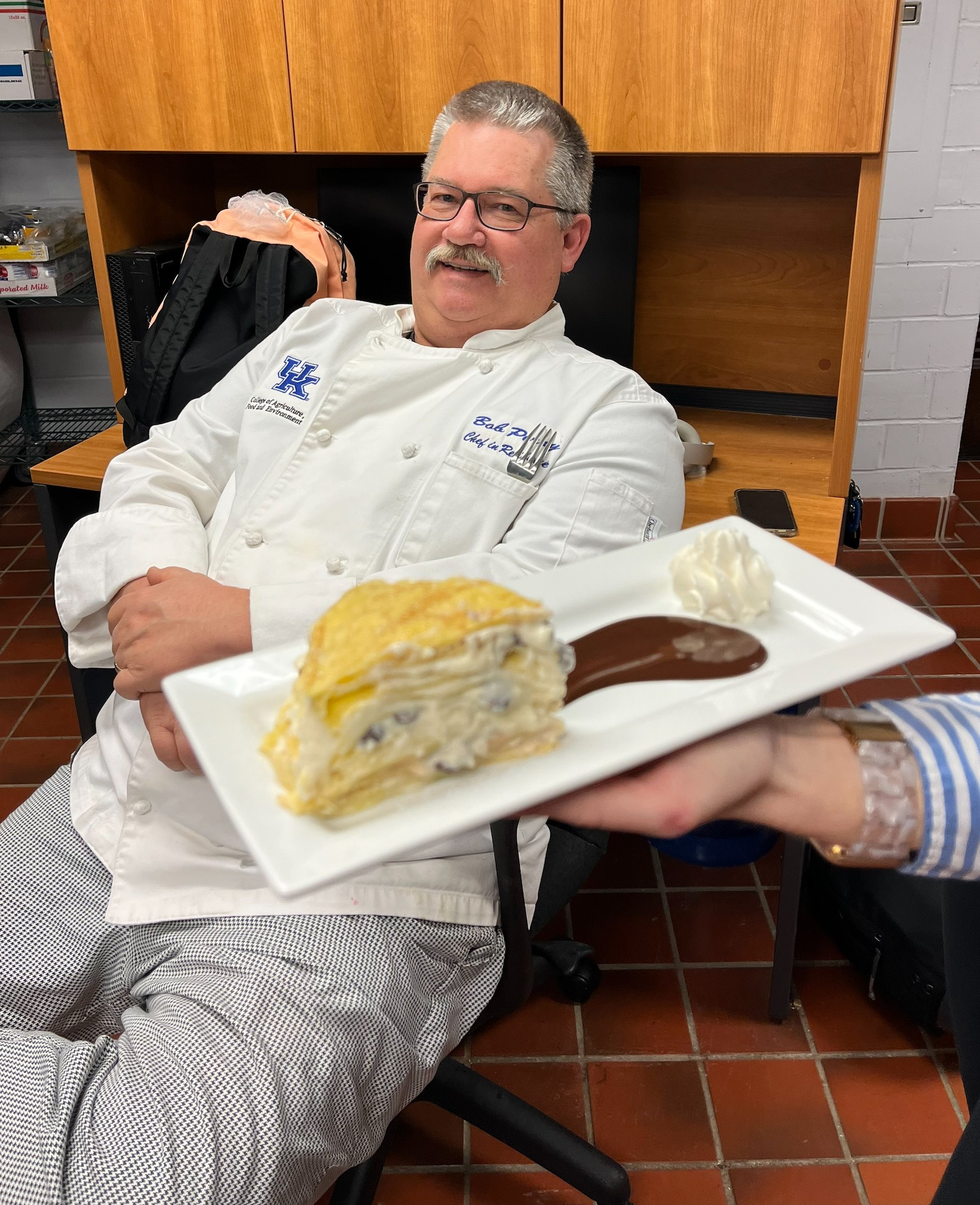
Beyond the conventional
Another former student and teaching assistant isn’t surprised about his research work or that his students are going on to do great things.
“His ventures stretched far beyond conventional instruction; he has always been actively involved in research, community outreach and fostering a vibrant local food movement at the university,” says Emma Simpson. "His extensive connections gave his students unique opportunities to meet influential figures in various fields, enriching their educational experience and giving them looks at new possible career choices.”
Today, as a Certified Diabetes Care and Education Specialist, Simpson applies the educational and interpersonal skills she honed while working with Perry. Her role involves outpatient counseling and education, using insights she gained from her time around him.
"The only way to describe it is that Bob is Bob," she finally says, reflecting on his unique, impactful presence that defies simple description.
Retired but certainly not forgotten
As Perry prepares to retire, his legacy is undeniable. It's not just in the thousands of pounds of locally sourced meats and produced gracing tables.
It’s in the way he made people think about their food. This simple truth, discovered through years of dedication, encapsulates the essence of his philosophies: genuine flavors create genuine connections with your food and other people, and you can never quit learning.
###
Writer: Jordan Strickler, jstrickler@uky.edu
The Martin-Gatton College of Agriculture, Food and Environment is an Equal Opportunity Organization with respect to education and employment and authorization to provide research, education information and other services only to individuals and institutions that function without regard to economic or social status and will not discriminate on the basis of race, color, ethnic origin, national origin, creed, religion, political belief, sex, sexual orientation, gender identity, gender expression, pregnancy, marital status, genetic information, age, veteran status, physical or mental disability or reprisal or retaliation for prior civil rights activity.
Dietetics & Human Nutrition Food Science Students

